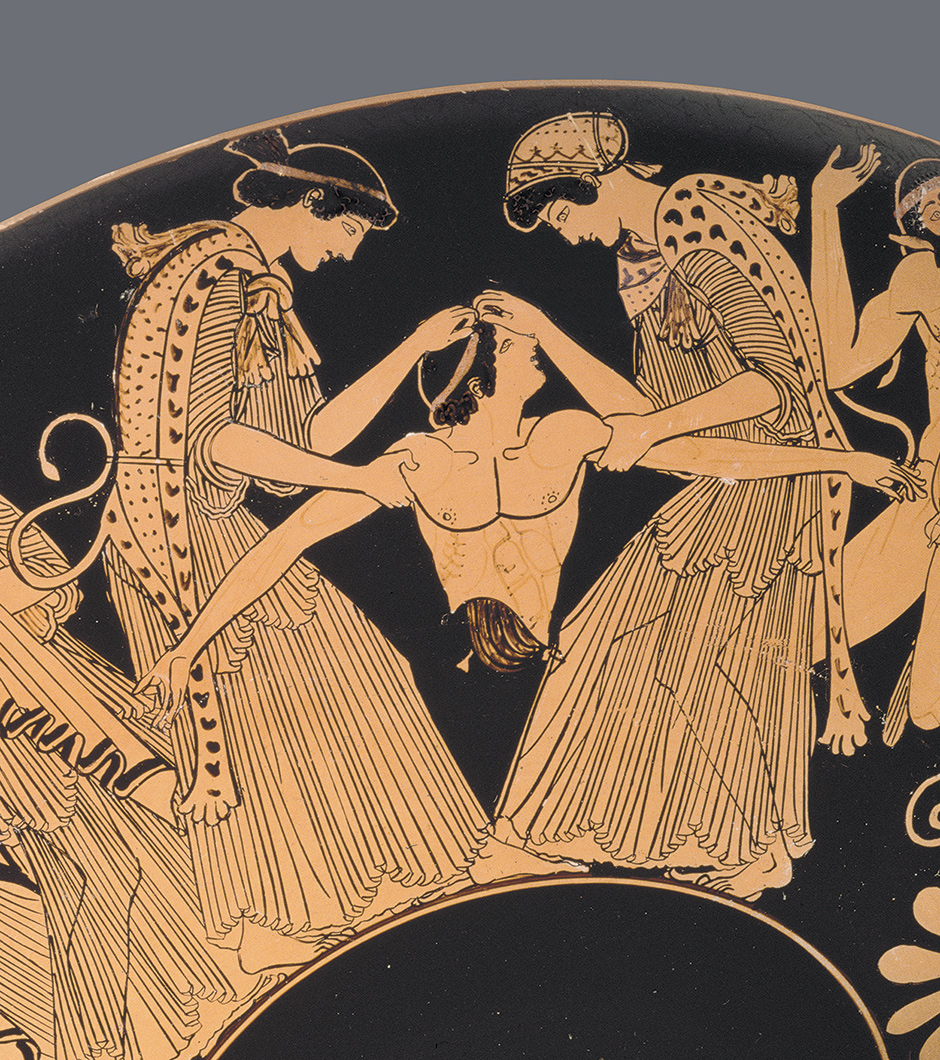In response to:
The Bacchae: Ecstasy & Terror from the September 25, 2014 issue
To the Editors:
In his fervent hymn to the singularity of Bacchae [NYR, September 25], Daniel Mendelsohn describes its text as “the only surviving Greek play about Dionysus himself, the god of drama.” But The Frogs of Aristophanes is another surviving Greek play about Dionysus (and Euripides and Aeschylus). Both plays were staged in 405 BC. Mendelsohn suggests that audiences watching Bacchae “are seeing double”—seeing actor and character in the play’s “reflections on how the theater works.” He could have added (with apologies to Marx) that Athenians in 405 saw Dionysus twice, one time in tragedy, a second time in farce.
Joel Schechter
San Francisco, California
Daniel Mendelsohn replies:
Of course Joel Schechter is correct to point out that Frogs, too, is a “surviving Greek play about Dionysus”; gripped, no doubt, by Dionysiac fervor, I had written “play” when of course I meant “tragedy.” I very much appreciate his excellent point that Athenian audiences in 405 would have seen two Dionysiac dramas, one tragedy, one farce—although if I may myself indulge in some nitpicking, I would point out that since the comedy was performed at the Lenaia Festival, around January, and the tragedy at the Dionysia, in late March, in this case the farce preceded the tragedy.
This Issue
October 23, 2014
How Bad Are the Colleges?
Find Your Beach
Law Without History?




